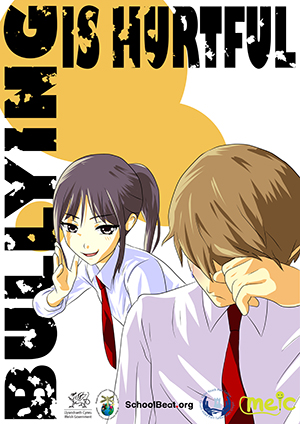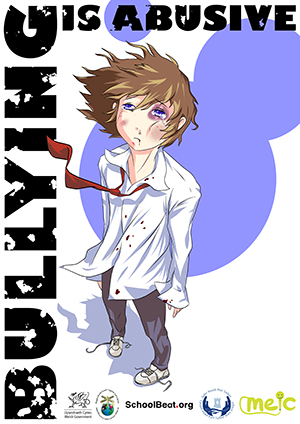How To Cope When Being Bullied

Bullying is a horrible experience. Although it’s cruel and cowardly behaviour, the sad truth is that some people continue to bully even as adults. That’s why, as well as taking action to report bullying, it’s important to learn how to cope so bullying behaviour can’t hurt you so much.
(This article is also available in Welsh – I ddarllen y cynnwys yma yn Gymraeg, clicia yma)
Below is some common advice we give to people who contact Meic about being bullied. We hope you find it helpful:
Understand that if you’re being bullied, it’s not your fault and you’re not alone. Bullying is learned behaviour which some people use to hide or cope with their own problems. Reasons someone might bully include unhappiness; being bullied themselves; insecurity and jealousy.
Share what’s happening to you with a close friend(s) who you can trust and who would be happy to walk/be with you when the bully is around. People are less likely to bully you when you’re with friends. You could also speak to a member of staff in your school/college, like a counsellor or well-being officer.

Protect your feelings from name-calling and hurtful behaviour. If someone says something hurtful to you, imagine yourself catching the words and throwing them into a dustbin! Follow that with a positive thought or view of yourself, such as, “I like myself”, or “I’m smart”; you’ll be surprised at how powerful this can be.
A powerful self-defence tactic is to walk confidently away from the situation, as it will not only help to keep you safe, but send a strong message to the person doing the bullying that you’re not prepared to be drawn into it. You can say something neutral like, “See you later” as you leave.
If you feel safe enough, speak to the person who is doing the bullying: it might help to resolve the situation. You may find out they’re not even aware of how much their behaviour is affecting you. If the bullying is more serious and involves (or may involve) physical violence, speak to an adult you feel you can trust who can help put an end to the bullying.

Try out some new hobbies or do more of the things you enjoy. Participating in positive activities can do wonders for your confidence and well-being, as well as giving you the opportunity to make new friends who share your interests. Feeling good about yourself and having a network of good friends can help reduce the impact of bullying behaviour on you.
Exercise has been proved to make people happier, reduce stress and keep you healthier. If you’re worrying or feeling stressed about bullying, try doing some physical activities, such as taking a long walk, swimming, and playing team games.

Find out if your school/college has a peer/mediation scheme, as mediation can help with issues of bullying, conflict and relationship breakdown.
Speak to Meic or a similar service. They offer free, confidential advice and the support you need to make a change.
Some great websites to get more support:




















